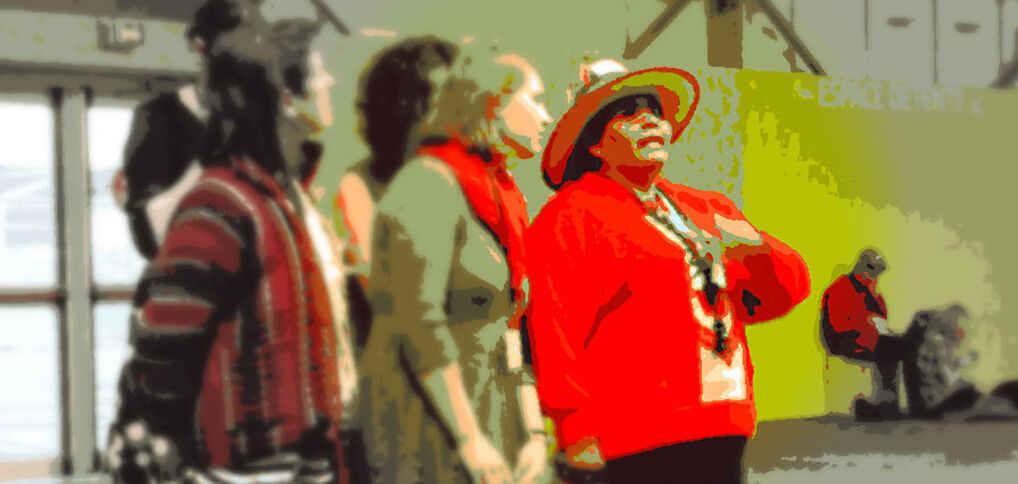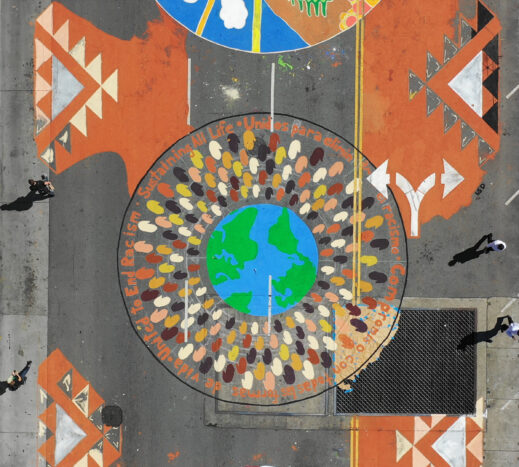
View this resource
as a PDF>>>
*****************
View this resource
in French
******************
View this resource
in Spanish
In order to stop the climate crisis, we will need to do many things that do not feel “normal.” We will need to break out of our passivity, stop over-consuming, and feel difficult feelings about the destruction of the environment and our own climate activism. We will also need to build close relationships to support each other in our climate work, despite a culture that systematically divides and separates us.
Sustaining All Life calls this movement against a “normal” culture of conformity, passivity, overconsumption, isolation, and numbness “Mental Health Liberation.”
For society to go on consuming and polluting the Earth’s resources for the financial benefit of the wealthy few, the vast majority of people must “behave” and go along with their own mistreatment. Society has many ways of forcing people to do that. We call one of these ways “Mental Health Oppression.” In this oppression, people diagnosed with mental illness are visibly and viciously attacked for stepping out of line – misbehaving – to scare everyone into submission to the status quo – the “normal” way that things operate. In this way, Mental Health Oppression affects all of us.

For example, if you had a friend or relative who got very upset and then was locked on a psychiatric ward or in a mental hospital, you might avoid thinking about things that feel “too upsetting,” like climate change. If you grew up hearing about a harsh, scary place where people were sent when they acted “crazy,” you might shy away from taking big, visible, outrageous, or disobedient actions to demand change.
Yet, to end the climate crisis, millions of us may need to get upset, show our outrage, and stop going along with what is considered “normal.” Current ideas about mental health promote psychiatric drugs that disconnect us, numb us out, and enrich large corporations. People who are unhappy are encouraged to choose these drugs over approaches that are low cost, free of harmful side effects, and put us in closer relationship with ourselves, each other, and our environment–such as exercise, meditation, peer listening, and spending time in nature.
Sustaining All Life stands against Mental Health Oppression and for Mental Health Liberation. Mental Health Liberation means standing up for everyone targeted by Mental Health Oppression. It also means pulling each other in close to face the feelings that keep all of us from taking action to stop the climate crisis.
The way we do this in Sustaining All Life is by taking turns listening to each other in a structured way that creates safety for us to share our wildest dreams of the change we would like to see in the world and to face, feel, and release the feelings that hold us back from making our dreams a reality.
We are actively seeking to expand our network and to share the theory and practice of Mental Health Liberation with people working to stop the climate emergency. We hope you will join us.


